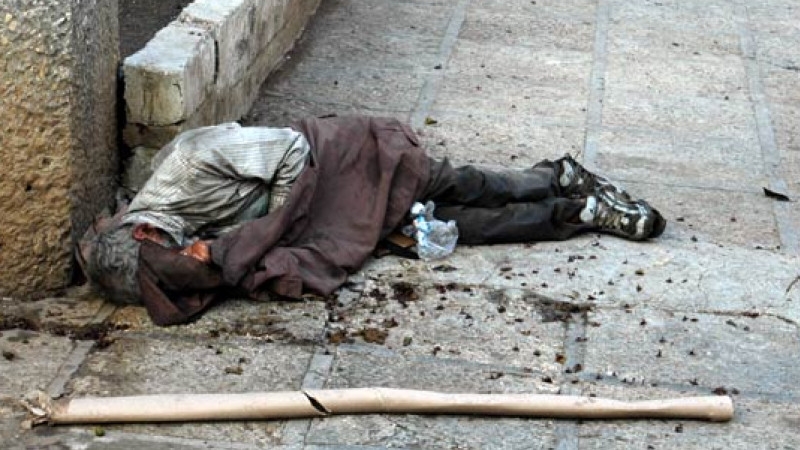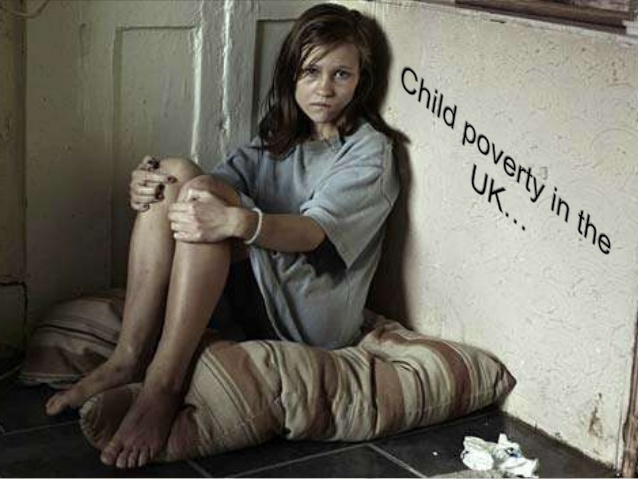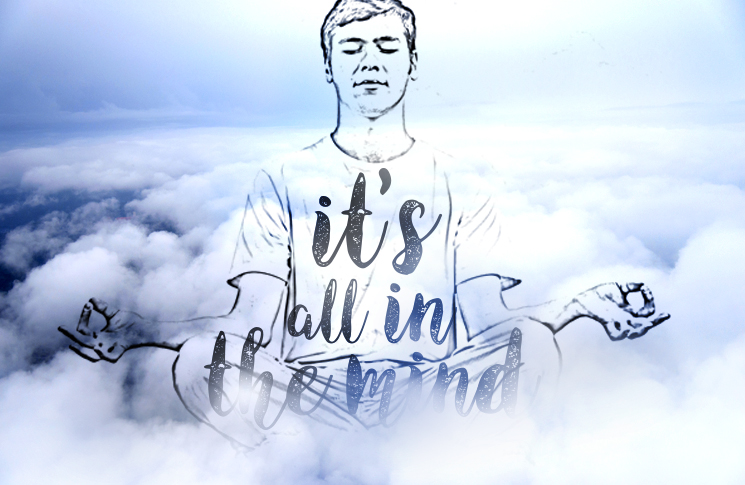
Photo:INDEPENDENT
UK has experienced 'explosion' in anxiety since 2008, study finds
‘Financial crash, austerity, Brexit, climate change and social media blamed for large rise’- Via The Guardian*
Why are we allowing all these to happen to us, young and old? This is my question
Poverty, Destitution, Hunger and Homelessness in the Midst of Plenty
This is nothing, but a manifestation of a cruel and inhumane state of affairs
Lest We Forget:
A country/nation drunk on market values, guided by cruel machinery of exploitation, racism, class division, austerity, cruelty, aggression, that humiliates it’s innocent, weak and vulnerable citizens, with neoliberalism, poverty, inequality and food banks and celebrates extreme individualism, feral competition, worship of mammon, rat-race to a success that it can never deliver and ignores the struggles and plight of its children and youth, ceases to be civilised and sooner or later ceases to exist morally or spiritually.
The Shame of Poverty and Destitution in Britain Today

Photo:holyrood.com
Do you have an eye for justice and sense of duty? Then, these questions are for you.
‘There has been an “explosion” in anxiety in Britain over the past decade, research has shown, with the financial crash, austerity, Brexit, climate change and social media blamed for massive rises in the condition.
The debilitating mental illness has trebled among young adults, affecting 30% of women aged 18 to 24, and has increased across the board among men and women under 55.
The findings emerged in one of the biggest studies of anxiety undertaken in the UK for many years, examining trends in diagnosis and treatment by GPs since 1998 by analysing 6.6 million patients at 795 practices across the UK.
Child Poverty UK: The Shaming of the British Elites

Photo:bing.com
The analysis found that the country has experienced what lead researcher Prof Nick Freemantle called “a massive increase, a profound increase” in anxiety, which began in 2008 when the worldwide crash caused by bad bank loans triggered large-scale unemployment and financial insecurity.
“Given the steep increases in anxiety revealed by this research, and the sheer number of people affected, it is now clear that Britain has a really serious and worsening problem with anxiety, which can have devastating effects on people’s lives. And these data stopped just before the Covid-19 pandemic; we can only speculate on how they would look now.”
In 2008, 8.42% of women aged 18 to 24 suffered anxiety, the study found, more than trebling to 30.33% by 2018. The proportion of women aged 25 to 34 with anxiety more than doubled over that time, from 9.08% to 21.69%, while there were smaller increases among women aged 35 to 44 and 45 to 54.
The incidence of anxiety in young and middle-aged men followed the same trajectory, although fewer had been diagnosed when the study period started, a gender divide that has not narrowed. Generalised anxiety disorder trebled from 4.95% to 14.88% among men aged 18 to 24, more than doubled from 9.08% to 21.69% among those aged 25 to 34 and rose to a lesser degree among those aged between 35 and 54.
“Rates of anxiety crept up a bit from 1998. But suddenly there was this explosion in 2008 in both the absolute numbers and also in particular in women and especially young women. That’s when the increase went through the roof,” Freemantle told the Guardian.
“These findings illustrate the human cost of what was going on in society at the time – that is, a recession. The 2008 crash was characterised by unemployment, especially youth unemployment. Young people who were just starting out in adult life had the rug pulled out from under them.”
An Open Letter to University Leaders: Students’ Mental and Emotional Wellbeing Must Be Our Priority
Student Suicides at Bristol University: My Open Letter to the Vice-Chancellor, Prof. Hugh Brady
Asked to identify other factors that might help explain the big increase, Freemantle added: “During this period [2008-2018] we had a recession, a vote to leave Europe, which was not popular among young people, social media became ubiquitous, there was increased concern about the climate, and there was a change of attitude towards [people disclosing that they have] anxiety disorder.
Some of those events may well have “contributed to feelings of hopelessness and powerlessness, coming as they did after years of financial insecurity”, added Freemantle, a professor of clinical epidemiology and biostatistics, and director of the Comprehensive Clinical Trials Unit at University College London.
He and his colleagues’ findings, which have been published in the British Journal of Psychiatry, stated: “It is notable that rates of generalised anxiety disorders and symptoms began their current upward trajectory around the time of the effects of the 2008 economic downturn and during the policy of austerity.”
The surge was accompanied by a big rise during 2009-14 in sick days workers in England and Wales took off due to stress, depression and anxiety. Six in 10 (62%) of those with anxiety also had depression, they found.
But there is a clear generational divide when it comes to anxiety, which has not risen among those aged 55 and over. That is probably because they tend to be less affected by economic factors and uncertainties faced by young adults, such as in housing and job prospects, Freemantle said.
Andy Bell, deputy director of the Centre for Mental Health thinktank, said: “These are very significant findings. They really point up the need to understand the economic and social reasons why anxiety has been rising. We shouldn’t jump to the conclusion that it’s all down to social media.
“Rates of common mental health difficulty are higher in more unequal countries and Britain has become more unequal since 2008.”
The Broken Economic Model and the Inhumanity of the Lost Decade of Austerity
Neoliberalism and the rise in global loneliness, depression and suicide
Experts warned that the profound impacts of the coronavirus pandemic on people’s health, jobs and daily lives almost certainly meant anxiety had increased even further this year.
Brian Dow, deputy chief executive of the charity Rethink Mental Illness, said: “Uncertainty is a normal part of life, but the Covid-19 pandemic and its quartet of uncertainties – illness, isolation, unemployment and debt – are bound to put rocket fuel under the level of anxiety that many people feel.
“There is clearly a systemic problem in the growth of anxiety and depression amongst young people. If we are to reverse this trend and prevent a problem becoming a crisis, the social contract we provide to young people has to have a better set of terms and conditions.”
'This is not about politics, it's about humanity'
Kindness to Heal the World- Kindness to Make the World Great Again
“In a world where you can be anything, be kind.”
Why Happiness Should be Taught at Our Universities
Crisis after Crisis: Ten Steps to Save the World
Case study
When Sydney was in year 7 and 8 at school, messages she read on the social media site Ask.fm made her cry. “I don’t know why I got it,” Sydney said of the app, which let people ask questions without revealing their identity. “The amount of abuse I got on it, along with others, was horrible.”
This was the start of a long and complicated journey the 20-year-old has had over the years. Sites such as this one, as well as Instagram and Facebook, compounded anxiety experienced since childhood.
“I used social media a lot when I was younger… the girls who posted would be tiny and have long hair. They would be picture-perfect and seeing those images would be really hard as I did not look like that, so I was constantly comparing myself to them,” she said.
At its worst, Sydney’s anxiety manifests itself in panic attacks that leave her feeling as if she is going to die. Her hands start to sweat and she zones out. At one stage, anxiety left her too terrified to leave the house and struggling to speak to people.
A turning point came with getting good therapy from someone who showed they cared. This, as well as exercise and her dog, who forces her out even when she doesn’t want to go, have left Sydney feeling more stable.
Part of her journey back to health has also involved changing the way she uses social media and only following accounts that make her feel good.
“Society expects women to be a certain way and if you are not that way you are ‘not good enough’. It’s always been that way since I have been young. We should be doing certain things and acting certain ways, and that is shoved out on social media,” she said.
So what do young people need? “If you reach out to a GP, you get referred and put on a long waiting list,” she said. “I feel like there needs to be a lot more support ... and it would also help to get people going into schools.”
*This article by Denis Campbell, health policy editor for the Guardian and the Observer, was first published in The Guardian on 14 September 2020.
Below you can read the full report:
The Path to a Better and Healthier World
A GCGI Initiative: Examining mental health issues around the world, with a special focus on children, youth, students, their teachers and lecturers.
This new GCGI Initiative is dedicated to the youth of the world, our children and grand- children, who are the unfolding story of the decades ahead. May they rise to the challenge of leading our troubled world, with hope and wisdom in the interest of the common good to a better future.
'A different world cannot be built by indifferent people.'
VALUING WHAT MATTERS MOST
It’s Time To Face The Facts On Children’s and Young People's Mental Health and Wellbeing

Photo:flightsafetyaustralia.com
